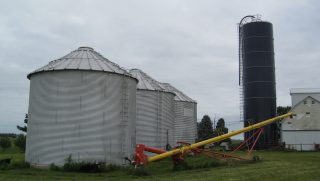The 2018 farm bill officially expired on September 30, 2023, in the midst of a near government shutdown. While a last-minute emergency funding bill avoided a total shutdown for at least 45 days, there is still concern of one impending.
What is going on with the farm bill during this time?
Firstly, and most importantly, you’ve undoubtedly heard that Kevin McCarthy was shockingly ousted as Speaker of the House in early October, which means a new speaker must be voted in. During such an uncertain time, this situation isn’t helping farm bill talks. One of the potential candidates, Ohio Representative Jim Jordan, has never voted on the farm bill since being elected 15 years ago, according to Steve Censky, the CEO of the American Soybean Association.
Then, of course, there is the fear of farm-bill programs ending if the government goes into a full shutdown. Most programs won’t actually be defunded until December 31, allowing them to still provide assistance until then. Once that date hits, however, operations cease. A few aren’t affected at all, because they are approved through appropriations, like the Supplemental Nutrition Assistance Program and federal crop insurance. Others will revert back to programs established when the farm bill was first created in the 1930s to 1940s — an obviously bad thing considering how much more demanding our farm bills are today versus back then.

Unfortunately, programs that were established to help small farmers lost funding on September 30. This typically means they cannot take in new enrollments, or may pause all together. Some conservation title programs are part of this.
The farm bill is one of the biggest legislative pieces being discussed through the 45-day period, along with other major appropriations bills that our country runs on. Despite the drama of a possible shutdown, there is a lot of hope that this extra time will allow everything to be passed — even it ends up in the nick of time. However, the priority will be placed on the other appropriations bills, which include about 11 different pieces of legislation that help to fund various federal agencies, and this could delay the farm bill even further.
Earlier this year, A provision in the debt-limit deal passed, outlining a 1 percent cut to all discretionary spending if Congress couldn’t pass all 12 appropriations bills in a timely manner. While this was done to incentivize agreements on these bills, it didn’t work exactly as planned, and talks on the farm bill have stalled.
What options are there?
Considering the tight time frame, and pushback between the House and Senate committees, having a finalized farm bill is a big ask. Drafts from both committees have been agreed upon since July but are vastly different from one another, meaning that both drafts have to be combined into one to even see the president’s desk for signature … and there seems to be some clashing between members of Congress, which adds to the problem.
Most likely, a continuing resolution will occur. According to the U.S. Government Accountability Office, “Continuing resolutions are temporary spending bills that allow federal government operations to continue when final appropriations have not been approved by Congress and the President. Without final appropriations or a continuing resolution (CR), there could be a lapse in funding that results in a government shutdown.”
There is the ability to have a short-term CR, but there isn’t a guarantee, either. As if the situation needed more uncertainty. With the next government shutdown deadline on November 17, and conflict in the Middle East, our government is inundated with many high priority issues that, if not handled properly, will have a lasting impact.
On a positive note, it’s not unusual for the farm bill to be extended, or to have the drama that seems to swirl around it every time it’s up for renegotiation. It certainly doesn’t make it less stressful, but it’s worth noting that nothing is off the table.
Markie Hageman Jones majored in agribusiness at Fort Hays State University. She is actively involved in her state Cattlemen’s Association, Young Farmers chapter, and National Cattlemen’s Beef Association. Her AGDAILY.com articles can be found here.



